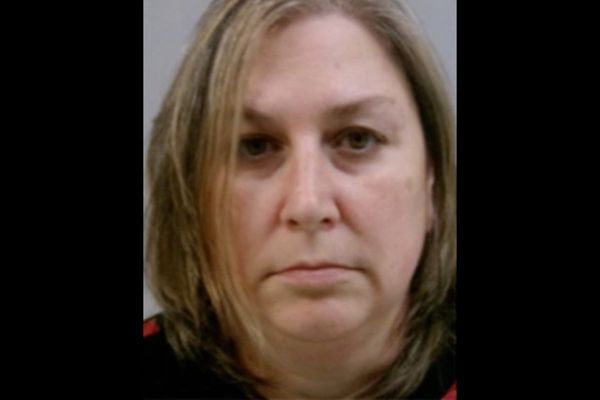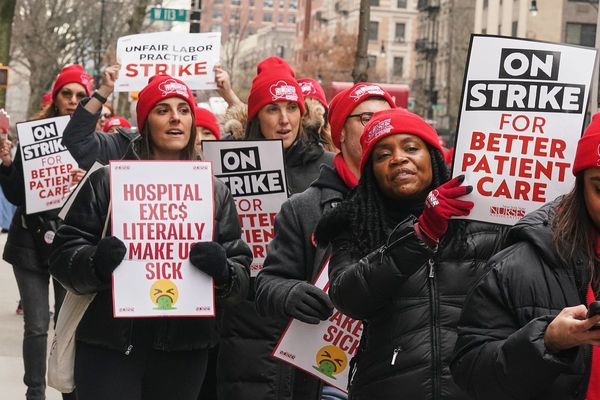
Well! Emily Maitlis versus Rupert Lowe yesterday was quite the encounter. On the one side, a tweedy, grey-haired bloke of 67 representing Great Yarmouth (not the bit of Norfolk that London grandees frequent), on the other the incarnation of the Metropolitan Elite, formerly of the BBC, Emily M, looking marvellously bronzed.
In case you missed it, she accused him of obsessing about Pakistani grooming gangs “because probably you are racist and you don’t believe there are white perpetrators”. She asked him repeatedly, a la Cathy Newman, “Do you believe there are too many Muslims in this country?”
And she accused him of making money out of the crowdfunded inquiry he’s set up into the phenomenon of Pakistani grooming gangs — or as he put it, Pakistani rape gangs — to which he replied that so far from making money, he was contributing money to it. She took very literally his tweet on X that illegal migrants should be put on an island and left to the midges (“you want to cause pain and suffering!”) and interrupted repeatedly when he tried to say what he actually meant, which was zero tolerance for illegal migration.
She challenged him to say that “all grooming is bad” to which he promptly agreed, adding that all rape was bad; ditto child exploitation. Did she think he wouldn’t?
What was striking about this encounter was what seemed to be the sheer venom of her attack; she came across as really angry, viscerally contemptuous, almost as cross as she seemed over Brexit or Trump. But she didn’t have it all her own way. Rupert Lowe responded with some choice home truths. “You don’t have illegal migrants living next to you, Emilly, because you live in a part of the country that probably doesn’t have them. Go and live next to these people and have them ogling your children.”
There will, I feel, be a number of people who were at this point cheering Go, Rupert! It wasn’t merely the apparent animus of the attack, which made it seem personal, not just the dispassionate interrogation of controversial but valid views. You couldn’t imagine interviewers of the old school – Andrew Neil say – seeming to treat an interviewee as an antagonist rather than a politician to be scrutinised. But it’s also that Emily is so very much representative of a political caste and its outlook. Rupert Lowe, whatever you may think about him – and Nigel Farage is obviously not a fan – represents a hardboiled constituency which really is socially deprived. He is in touch with realities that she likely isn’t.
The Emilies are probably not going to be exposed to any of the realities they seek to dismiss
And that is exactly why she, like the leader of the House, Labour’s Lucy Powell, who dismissed talk of the grooming gangs as “dog whistle” politics, rouses strong passions. The Emilies are probably not going to be exposed to any of the realities they seek to dismiss. As Rupert Lowe observed, they are probably never going to find their children exposed to sexual predators who exploit them because they are white, poor and vulnerable because they and their families are shielded by class, money and physical remoteness from the problem.
The salient scandal of the grooming gangs was not just that groups who were almost wholly Pakistani preyed on vulnerable girls under the age of consent who were white, troubled, often from care homes, but that social services and police refused to address the problem for fear of being thought racist. Rupert Lowe’s crowd funded inquiry is his attempt to shame the Government into holding an official inquiry, which it won’t do.
Andrew Norfolk, the Times reporter who revealed the abuses in Rotherham and elsewhere, certainly disapproved of the way that right wing groups have made political use of the horrors he revealed. But for quite some time, it was only far-right groups like the BNP that took the issue seriously, and for that reason it was avoided by mainstream journalists.
Andrew Norfolk however did come to take it seriously and was lambasted as racist for his trouble. In January, he suggested the ultimate cause of the scandal had yet to be properly investigated, including the cultural and religious aspects of the abuse. That includes cousin marriage and ethnicity. These things are not being explored and one reason may be that we do not want to confront the answers.
Certainly there seems little doubt that the problem of child exploitation gangs is widespread and has probably got worse, not better, since Andrew Norfolk’s report in 2011, with the headline, ‘Conspiracy of Silence on UK sex gangs’.
And the problem of organised child exploitation includes white perpetrators as well as Asians. Plainly child abuse is common to every class and ethnicity – and mostly happens in families. The issue is that this particular exploitation does seem to have an ethnic and religious component which signals to social services and councils and police not to go there, because – well, you know why. And what about London? Are we even asking?
We should have a public inquiry; but we should also be dealing proactively with the reports that the problem is as great in Bradford and Blackpool as in Rotherham. The spat between Emily Maitlis and Rupert Lowe gives us an idea why that isn’t happening.
Melanie McDonagh is a London Standard columnist







